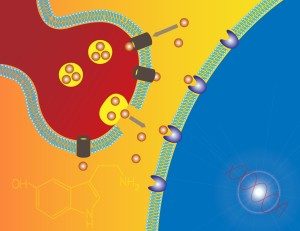Causes of Depression, Symptoms, and Treatment Options
Clinical depression, or more correctly major depressive disorder, is a debilitating condition that affects in excess of 17 million Americans each and every year. Low socioeconomic, minority and single statuses are each separate risk factors for the development of clinical depression. After puberty, women are more than twice as likely as men to experience a depressive episode, probably secondary to socioeconomic differences, multiple role transitions and hormonal fluctuations, as well as increased vulnerability to traumatic experiences.
But what are the actual causes of depression? In addition to looking at the various causes of depression, we will also touch on some of the treatments that are available.
Understanding The Causes of Depression
Depression can strike at any time. Sometimes it is quite clear what has triggered an attack, but more often than not, the causes of depression can be a combination of events. Factors that predispose you to depression include your gene pool, (some people are just more prone to becoming depressed than others), your environment, medical problems (including thyroid disorders, heart disease, migraines and fibromyaligia and chronic pain in general) and psychological events, including chronic emotional stress from negative life events or trauma. Even some medications can have side effects that cause depression. Alcohol and substance abuse can also trigger and maintain a clinical depressive state.
No matter what the causes of depression are, the symptoms are often similar. A lack of enthusiasm in your work and your social life; a constant feeling of sadness; bouts of deep self-blame and excessive guilt; loss of self esteem, and a complete feeling of disorientation and hopelessness. Many people get the blues from time to time. But full-blown depression is not just some sort of passing mood; it is a much more consistent and deep feeling of utter despondency that lasts at least 2 weeks and can take weeks or even months to recover from.
Knowing The Causes of Depression & Getting Treated
People impacted by one of many causes of depression frequently show a total disinterest in trying to help themselves, and amateur counseling from friends and relatives, however well-meant, is often ineffective and may not touch on the causes of depression. Clinical depression, if left untreated, can be life threatening because it significantly increases the risk of suicide; therefore, it is important to seek out care from skilled professionals who have special training and experience. Licensed psychiatrists and therapists, who thoroughly understand the causes of depression and symptoms, are the most skilled in treating clinical depression, and can work closely with primary care providers to provide comprehensive care.
There are different causes of depression, and there are various treatment options. The various depression treatments most practiced today include psychotherapy and the administration of antidepressant drugs. It is often the case that psychotherapy is insufficient and that a combination of both drug therapy and psychological counseling is necessary to provide the most effective care for a depressed individual. Whatever treatment is decided upon, it will probably have to be administered over a period of weeks, usually for several months.
There is, however, a new depression treatment that has recently come onto the market. It is called Transcranial Magnetic Stimulation (TMS), a new technology that involves the use of magnetic waves. Small magnetic pulses are directed towards a very specific area of the brain from outside the head. While the exact mechanism of action is unclear, the theory is that these pulses enter the brain and that they stimulate certain natural neurological processes that are capable of bringing the patient out of the depression. TMS can be quite effective and safe in the treatment of depressed patients who have not found relief from one prior antidepressant medication attempt, or who have not been able to tolerate drug-related side effects. People who want to avoid drug exposure altogether may also find TMS to be a worthwhile option.
What is true is that different people respond differently to different therapies, possibly because of differing causes of depression. But with the complexities surrounding the causes of depression, and the intricacies of the human mind, one can only aspire to try to pull people out from their depressions at the earliest possible opportunity, so that they can be restored once more to their genuine, fully functional selves. Now that you have taken your first step to better understand the causes of depression, you are better prepared to take care of yourself and find treatment.
Article content, © Kira Stein, MD, APC. | West Coast Life Center

